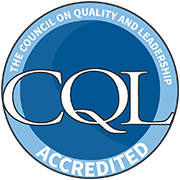State: West Virginia
Filed: 2020
Court: U.S. District Court for the Southern District of West Virginia
Plaintiffs: Parents of children with disabilities in Kanawha County Schools
Defendant: Kanawha County School District
Counsel: The Arc, Mountain State Justice, Bazelon Center for Mental Health Law, Disability Rights West Virginia, Latham & Watkins
Overview: In 2020, The Arc, along with other local and national disability advocacy organizations filed a class action complaint in federal court alleging that Kanawha County Schools (KCS) has failed to educate children with disabilities, including autism, intellectual or developmental disabilities, mental health concerns, and Attention Deficit Hyperactivity Disorder (ADHD). Specifically, the groups assert that KCS—the public school district serving the Charleston metro area—has failed to provide behavioral and academic supports to students with disabilities and is instead segregating them into separate schools and classrooms, or sending them home because KCS schools will not educate them. The advocates allege that KCS has violated federal laws protecting students with disabilities.
As described in the complaint, scores of children with disabilities enrolled in KCS have been separated unnecessarily from mainstream classrooms in their schools. Instead, the students are segregated for years in separate classrooms where they interact only with other students with disabilities, and receive an inferior education; placed on “homebound” status where they may only receive a few hours of tutoring each week; or suspended or even expelled from school for behaviors that are caused by their disabilities. The students are not receiving critical behavioral supports that can help them be successful in the general education classroom with their classmates without disabilities.
Specifically, the complaints allege that KCS is: 1) violating the Individuals with Disabilities Education Act (IDEA) by failing to provide children with disabilities with the special education they need to receive a “free appropriate public education” in the least restrictive environment; and 2) violating the Americans with Disabilities Act (ADA), Section 504 of the Rehabilitation Act (Section 504), and the West Virginia Human Rights Act by failing to educate children with disabilities in the most integrated setting appropriate to their needs, and denying them equal educational opportunity.
Status: Plaintiffs overcame a motion to dismiss in July 2020. Litigation is ongoing.
Case Documents
Due Process Complaint
Federal Court Complaint
Amended Federal Court Complaint
Order on Motion to Dismiss
Related Media
Press Release: Class Action Complaint Filed in West Virginia Alleging Systemic Disability Discrimination in Kanawha County Schools
Press Release: West Virginia, National Disability Advocacy Groups File Complaints Alleging Systemic Disability Discrimination in Kanawha County Schools
Press Release: Court Rules that Federal Disability Rights Class Action Against Charleston, West Virginia School District Can Proceed
Washington Post: ‘Warehousing at its worst’: Rights groups say W.Va. school system gives inferior education to special-needs students
West Virgina Record: Special needs student sues Kanawha County Schools for not properly providing for students







